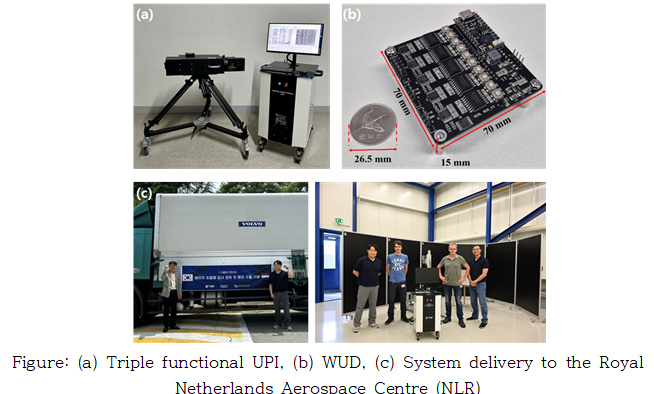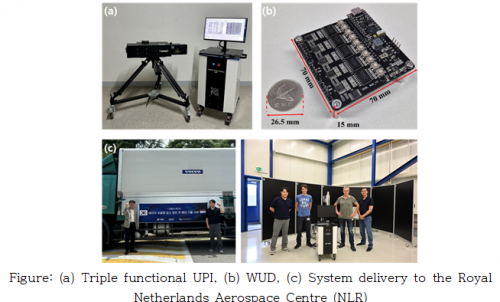Major research outcome
- Professor Lee Jung-Ryul's Lab successfully completed the core technology R&D project, “Wireless Sensor-Based Damage Detection and Aircraft Integration Technology,” in collaboration with the Agency for Defense Development (ADD), and achieved successful exp
- 관리자 |
- 2024-10-24 05:42:50|
- 206
- 2024-10-24 05:42:50|
The project titled "Wireless Sensor-Based Damage Detection and Aircraft Integration Technology" was conducted with the goal of developing non-contact high-speed sensing technology and real-time damage visualization techniques that enable selective inspections without long maintenance cycles or the need for aircraft disassembly. The project also aimed to deliver prototype systems as its final outcome. Traditional methods for aircraft damage detection, such as Structural Health Monitoring (SHM) or Non-Destructive Testing (NDT), require inspectors to use contact sensors with additional equipment, which consumes significant time and effort. Additionally, aircraft disassembly is often necessary for internal structure inspections, and substantial time is required to install equipment for transmitting and receiving large volumes of data. To address these challenges, this project aimed to develop the Triple functional UPI (Ultrasonic Propagation Imaging System), a non-contact laser-based device, and the WUD (Wireless Ultrasonic Device) for high-speed wireless sensing. The developed Triple functional UPI can selectively perform three functions using a combination of lasers for generating and measuring ultrasonic waves. The WUD was designed to wirelessly transmit and receive data using sensors and actuators attached to the target structure. During the project, the Triple functional UPI was validated by successfully detecting defects like adhesive separations in unmanned aerial vehicles (UAVs). The WUD achieved a wireless transmission range of 60 meters with a node weight of 38 grams, marking a successful project completion. Additionally, the UPI had been successfully exported to the Royal Netherlands Aerospace Centre (NLR) in July 2024 through a technology transfer to the lab venture company Space NDT Co., Ltd.


| Attach File |
|---|


